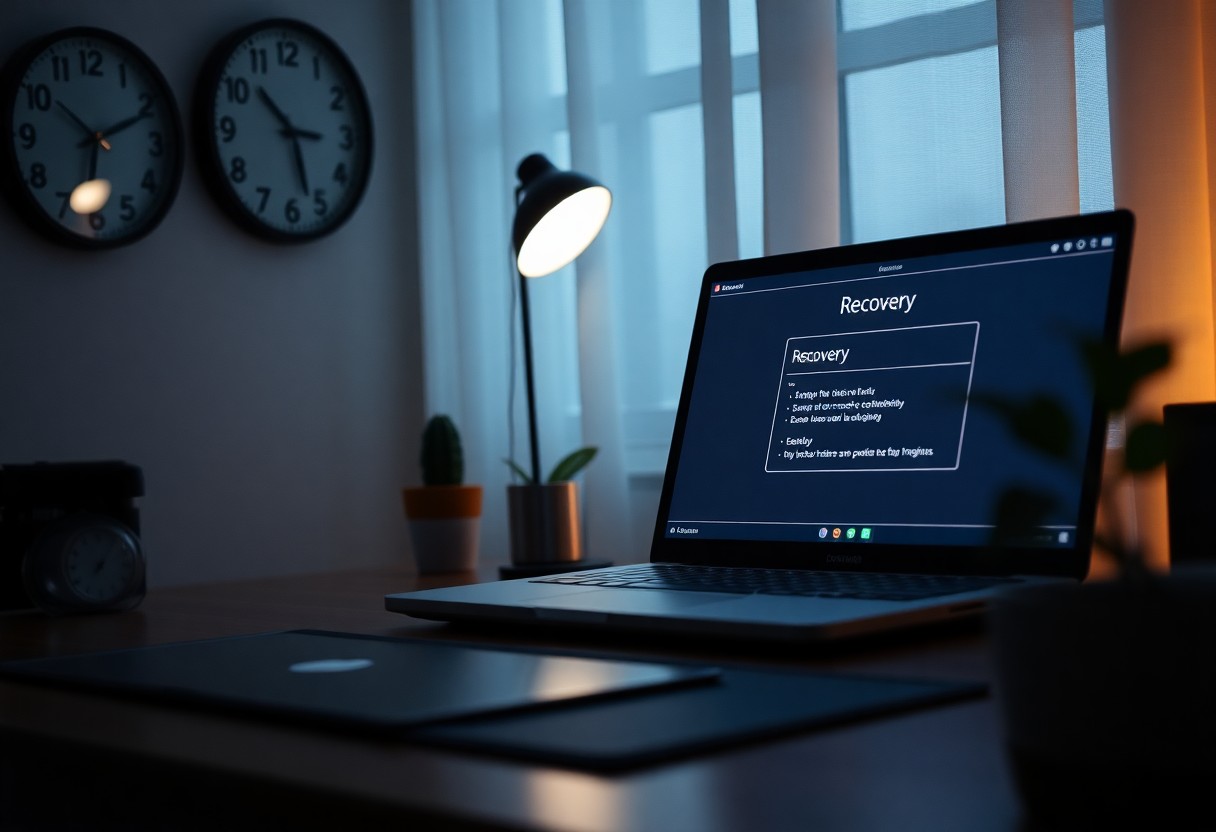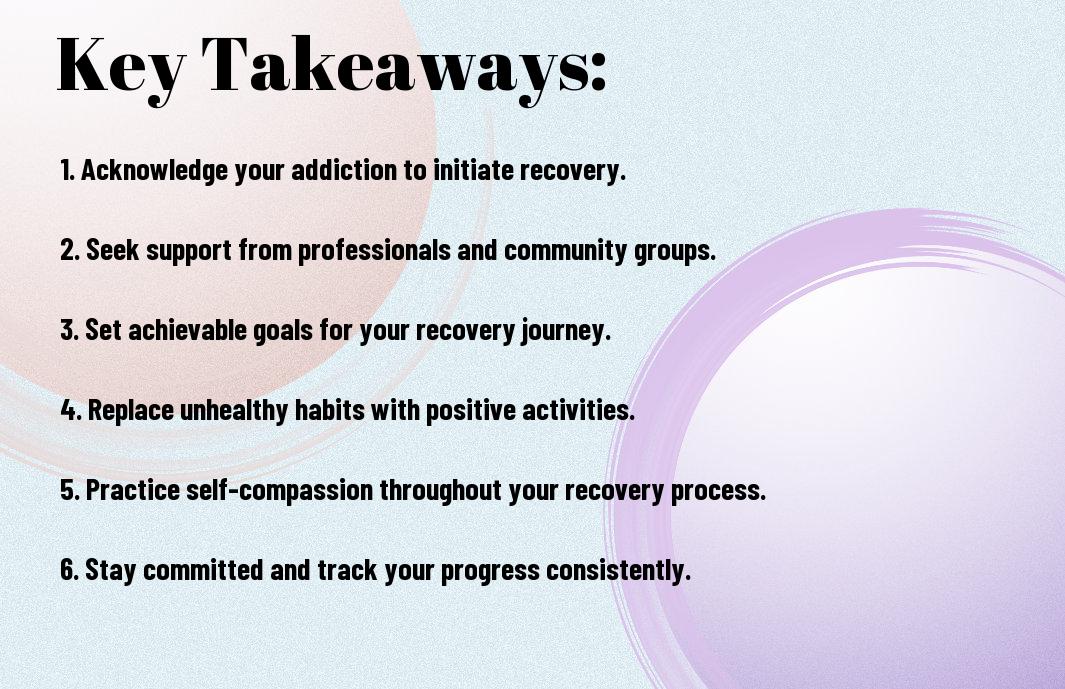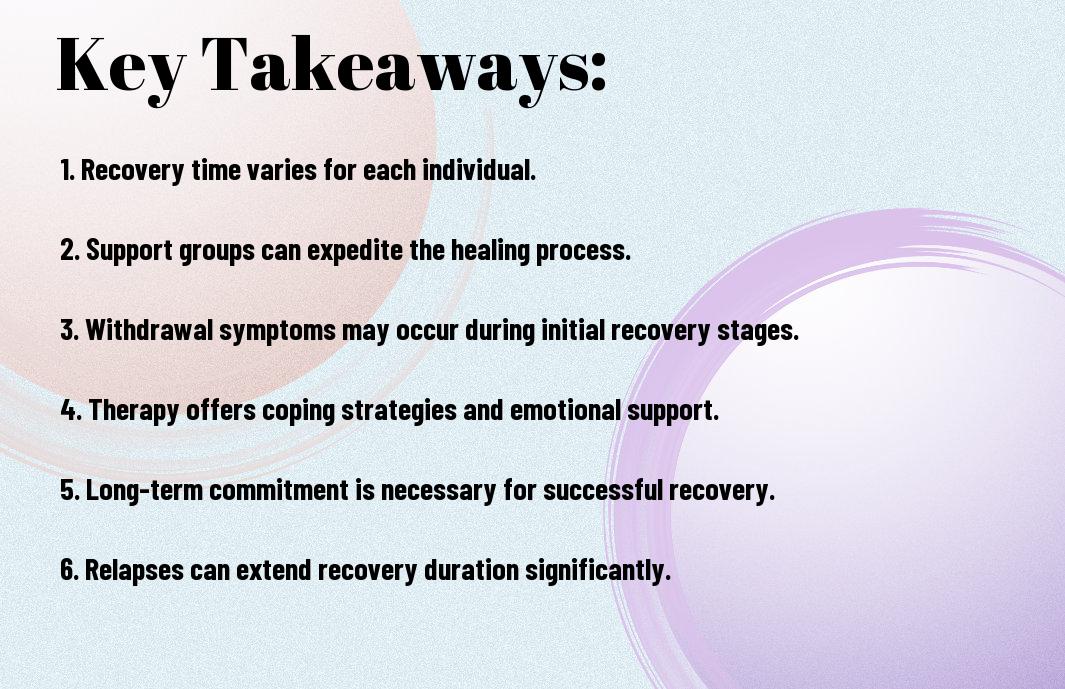There’s a significant journey ahead of you if you’re seeking to recover from porn addiction. Understanding the recovery timeline is important as you navigate through this process, which often includes various emotional and psychological challenges. You may wonder how long it will take to overcome your addiction and reclaim a healthier relationship with intimacy and sexuality. In this blog post, we will explore the factors that influence recovery duration and offer insights to guide you on your path to healing.

Key Takeaways:
- Recovery from porn addiction varies widely, with timelines ranging from a few months to several years depending on individual circumstances and support systems.
- Understanding the psychological and physical effects of porn addiction is important for effective recovery.
- Developing healthier coping mechanisms and habits can significantly aid in the recovery process.
- Support from therapy, support groups, and understanding friends and family plays a vital role in sustaining progress.
- Setting realistic goals and celebrating small achievements can help maintain motivation throughout recovery.
- Relapses may occur, but they can be viewed as learning experiences rather than failures.
- Staying informed about the potential triggers and underlying issues can empower individuals to navigate their recovery journey more successfully.
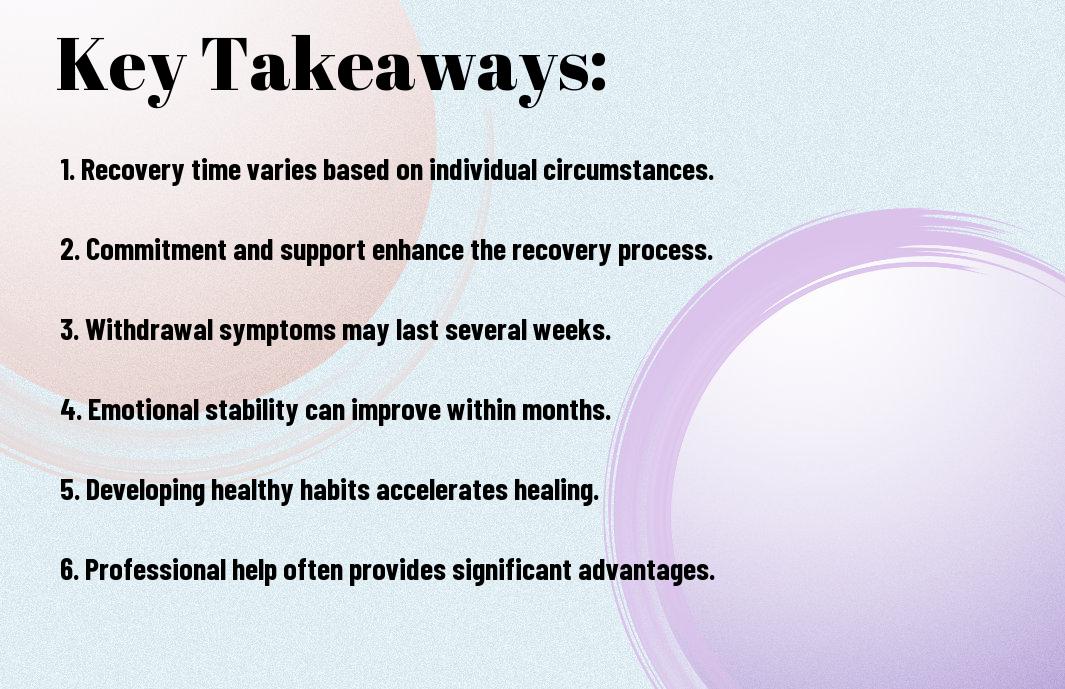
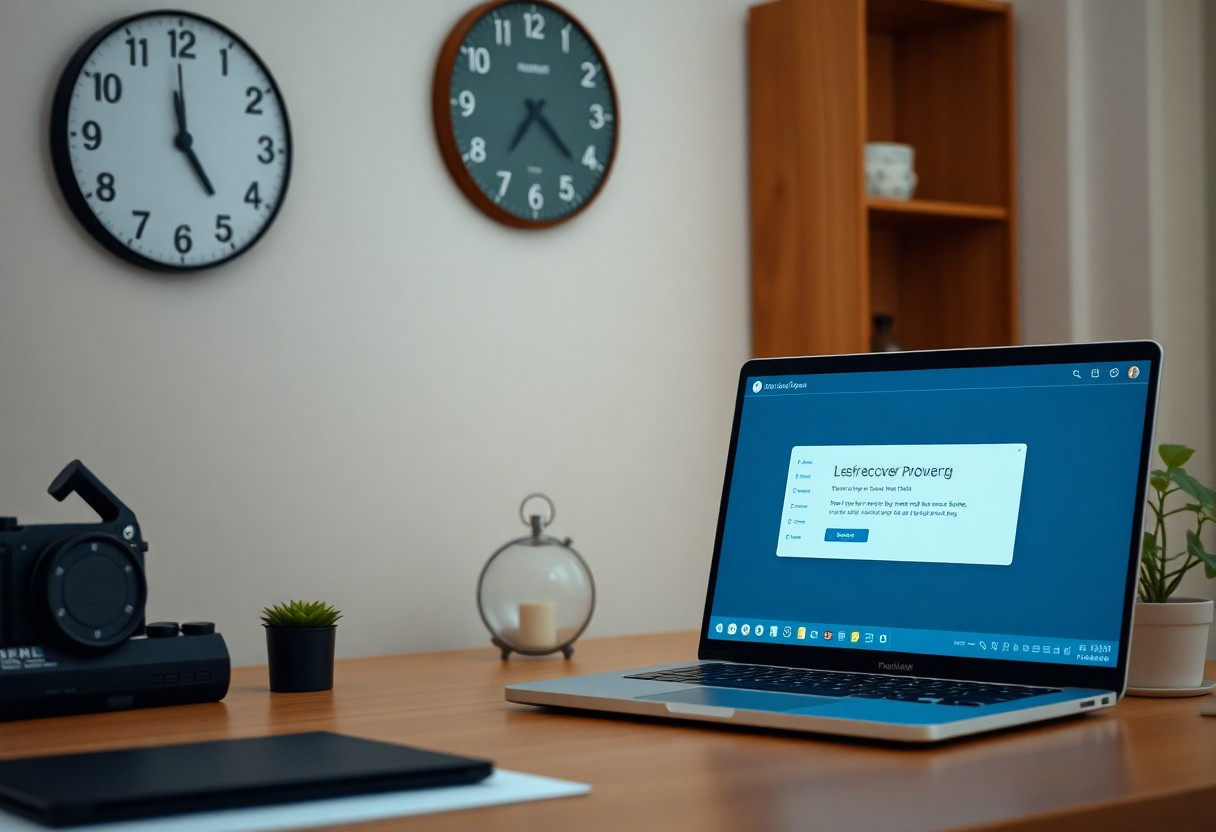
Understanding Porn Addiction
While many view porn as a harmless pastime, it can lead to significant issues in your life. Porn addiction occurs when you find yourself compulsively engaging with pornographic content to the point where it interferes with your daily activities, relationships, and overall well-being. Recognizing this as an addiction can be the first step towards reclaiming control over your life.
Defining Porn Addiction
For some individuals, porn addiction manifests as an uncontrollable urge to watch pornography, even when it leads to negative outcomes. It’s often characterized by an inability to set limits on viewing or a persistent desire to consume more content despite adverse effects on your life.
Signs and Symptoms
By being aware of the signs and symptoms of porn addiction, you can better assess your relationship with porn. Common indicators include spending excessive time viewing porn, neglecting responsibilities, and experiencing cravings or withdrawal symptoms when not consuming it.
It’s imperative to recognize that these signs can vary from person to person. You might notice that your usage has escalated, requiring more extreme content to achieve the same thrill. You may also find yourself lying about your habits to others or using porn as a coping mechanism to deal with stress or emotional issues. If you relate to these experiences, it could be time to explore healthier alternatives and seek support.
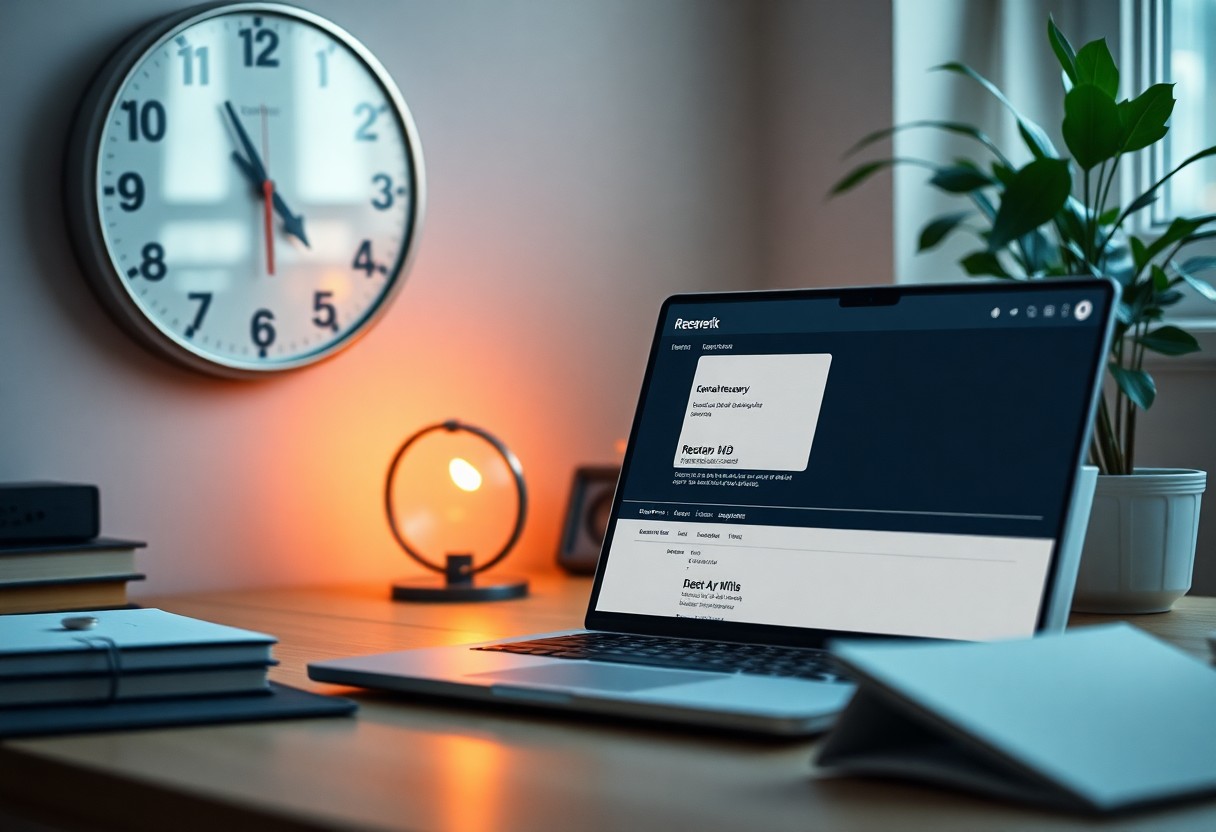
The Recovery Process
The journey to overcome porn addiction is a multifaceted process that requires time, commitment, and often professional support. You will encounter various stages of recovery, including awareness, understanding triggers, and building healthier habits. Each person’s experience is unique, but gradually, you can expect to see improvements in your emotional and mental well-being as you navigate this transformative path.
Initial Steps to Take
Around your initial steps, it’s important to acknowledge your addiction and assess its impact on your life. Begin by reflecting on your usage patterns and identifying situations that trigger your urge to engage with pornography. Seeking support from friends, family, or support groups can greatly enhance your journey toward recovery.
Setting Realistic Goals
To effectively navigate your recovery, it’s important to set realistic and achievable goals. This will help you stay motivated and track your progress without feeling overwhelmed.
Recovery involves establishing incremental goals that align with your personal circumstances. Start with small, manageable targets, such as reducing the frequency of use or abstaining for a few days each week. As you achieve these milestones, gradually increase the challenge. This approach not only builds confidence but also reinforces your commitment to lasting change, allowing you to create a healthier relationship with yourself and others.
Duration of Recovery
Your journey towards recovery from porn addiction can vary widely from person to person. Factors such as the length of time you’ve struggled with the addiction, your support system, and your personal motivations play significant roles in determining how long the recovery process will take.
Factors That Influence Recovery Time
Recovery from porn addiction is influenced by various factors that can either accelerate or hinder your progress. Consider these aspects:
- Your commitment to change
- Access to support networks
- Underlying mental health issues
- The presence of triggers in your environment
Assume that by addressing these factors, you can enhance your chances of a smoother recovery process.
Expected Timeline for Recovery
Below are general expectations regarding the timeline you might experience during recovery from porn addiction. While some may notice improvements within a few weeks, lasting change typically requires sustained effort over several months or even years, depending on individual circumstances and level of commitment.
Recovery journeys are not linear and can differ significantly among individuals. Generally, you may start to feel initial benefits after a month, yet full recovery can take up to six months or longer. The continued development of healthier habits and coping mechanisms will be vital during this time. Stay focused on your goals and be patient with yourself; incremental progress is the key to long-term success.
Techniques and Strategies
Keep in mind that your recovery journey may involve various techniques and strategies tailored to your needs. Exploring professional guidance, incorporating mindfulness practices, or considering lifestyle changes can aid significantly in breaking free from porn addiction. For more insights into How Long Does it Take to Break a Porn Addiction?, understanding these methods can empower you to take control of your life.
Cognitive Behavioral Therapy (CBT)
Among the effective methods for overcoming porn addiction is Cognitive Behavioral Therapy (CBT). This structured approach helps you identify and change negative thought patterns and behaviors associated with your addiction. By working with a qualified therapist, you can develop healthier coping mechanisms and reinforce positive habits that lead to lasting change.
Support Groups and Resources
For many individuals, support groups and resources provide a vital network during recovery. Engaging with others who share similar experiences can foster a sense of community and accountability while offering valuable insights and coping strategies.
Cognitive behavioral therapy is complemented well by various support groups and resources available online and in your community. These connections enable you to share your experiences, hear from others who have faced similar challenges, and draw strength from their journeys. Joining a support group can also create an environment that encourages open dialogue and self-discovery as you work toward healthier patterns in your life.
Overcoming Relapses
Once again, relapses can be a part of your journey in overcoming porn addiction. They can feel discouraging, but understanding that setbacks are normal can help you maintain your focus on recovery. What matters is how you respond to these relapses, learning from them instead of allowing them to derail your progress.
Identifying Triggers
Beside developing a plan, recognizing what triggers your urges is vital. Keep a journal to note down situations, feelings, or environments that precede your relapses. By identifying these patterns, you can begin to avoid or manage these triggers effectively.
Developing Coping Mechanisms
Overcoming situations related to your triggers involves creating healthy coping mechanisms. Implement strategies like mindfulness, engaging in physical activities, or building a support network to divert your attention when faced with urges.
Even small changes can lead to significant benefits. Consider activities that make you feel fulfilled, such as creative hobbies or exercise, to redirect your energy. Practicing mindfulness techniques, like meditation, can help you become more aware of your thoughts and emotions. Additionally, connecting with friends or support groups allows you to share experiences and gain encouragement, further strengthening your commitment to recovery.
Maintaining Long-term Recovery
All individuals recovering from porn addiction must develop strategies to maintain their progress and avoid relapse. This journey involves cultivating a healthy and supportive environment, practicing self-care, and continually monitoring your emotional well-being. By making conscious choices and implementing lifestyle adjustments, you can build resilience against future challenges and encourage lasting recovery.
Lifestyle Changes
With a focus on positive lifestyle changes, you can create an environment that supports your recovery. This includes engaging in regular physical activity, adopting a balanced diet, and ensuring adequate sleep. Surrounding yourself with positive influences and reducing exposure to triggering content can also significantly enhance your recovery journey.
Continuing Support Systems
With continued support systems, you can navigate the complexities of recovery more effectively. Building a network of accountability through trusted friends, family, or support groups provides you with encouragement and understanding. These connections are important as you face the challenges and emotions that may arise on your path to a healthier mindset.
But staying connected to your support systems is not just about accountability; it enhances your sense of belonging and understanding. Engaging in regular discussions with peers who share similar experiences can help you process your feelings and reinforce your commitment to recovery. Support groups, therapists, or online communities offer valuable resources and insights, making it easier for you to share your journey while learning from others, ultimately strengthening your resolve against relapse.
Conclusion
To wrap up, overcoming porn addiction is a journey that varies for each individual, depending on factors like commitment, support systems, and personal circumstances. Understanding that recovery can take time allows you to approach the process with patience. If you’re navigating this path and want to know more about the impact on relationships, you can explore How Long Does It Take a Couple to Recover from Sexual … for additional insights. Embrace the changes you need to make for a healthier future.
FAQ
Q: What is porn addiction?
A: Porn addiction refers to a compulsive need to consume pornography that interferes with daily life, relationships, and mental health. It can lead to negative consequences such as decreased sexual satisfaction, issues with intimacy, and feelings of shame or guilt.
Q: How do I know if I am struggling with porn addiction?
A: Signs of porn addiction may include spending excessive amounts of time viewing pornography, neglecting responsibilities or relationships to do so, experiencing withdrawal symptoms when not watching, or feeling unable to control or reduce consumption despite wanting to do so.
Q: How long does recovery from porn addiction take?
A: Recovery time varies for each individual. Some may see improvements in a few weeks, while others might take several months or even years. Recovery largely depends on factors like the severity of addiction, individual commitment to change, and support systems in place.
Q: What steps can I take to start my recovery from porn addiction?
A: Start by acknowledging the problem and seeking help through therapy, support groups, or educational resources. Setting clear goals, finding healthier activities to replace porn consumption, and surrounding yourself with supportive people can also aid in the recovery process.
Q: Are there any therapies specifically designed for porn addiction?
A: Yes, several therapeutic approaches can effectively address porn addiction, including Cognitive Behavioral Therapy (CBT), which helps change negative thinking patterns, and support groups like Sex Addicts Anonymous (SAA), which provide a community of shared experiences.
Q: Can porn addiction lead to other mental health issues?
A: Yes, porn addiction can contribute to various mental health concerns such as anxiety, depression, and low self-esteem. The compulsive nature of the addiction often exacerbates underlying issues, making it crucial to address both the addiction and any related mental health challenges.
Q: How can I maintain my recovery long-term?
A: Long-term maintenance involves creating a supportive environment, developing healthy coping mechanisms, and continuing to engage with therapy or support groups. It’s also helpful to establish a routine that promotes overall well-being, such as exercising, journaling, and maintaining social connections.
